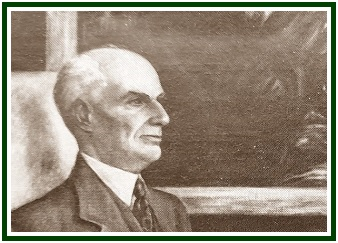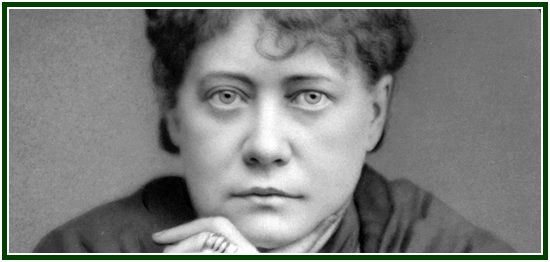
Choose an Ideal, and Love It Ardently
Jean des Vignes Rouges

You have set a specific, concrete goal for yourself. Is it enough?
No! You also need an ideal. The word seems old-fashioned. It brings to mind some form of brainwashing which old people, driven by an austere and noxious zeal, would impose on young people. The ideal, you may think, is it something to eat on a toast? Is this what we warm ourselves with, what we dress ourselves with, what we have fun with? How ironic then to speak to me of an ideal, when I am penniless! Your notion of ideal does not work. Keep it to yourself!
I will offer it to you anyway, for you seem to need it very much.
Let us ponder for a moment. You are not happy, because there are obstacles in your way. You protest bitterly. But in reality, things and institutions do not seem to pay any attention to your recriminations. Then you exclaim: “Ah! It would be better if people were good, just, truthful and fraternal; if society was made differently, if morality was respected, and so on.”
By saying that you have formulated an ideal, an image of perfection such as your frustration makes you conceive it.
But it’s not only the external reality that seems bad to you. Your intimate being – your self, your personality – does not always satisfy you. In how many circumstances have you wished to be stronger, more learned, more skillful, more eloquent, more proud and more courageous? It also seems highly desirable to you to be considered by your fellow citizens as a just, honest, generous and honorable man. You even think that it would be really excellent to leave to your children and to posterity the memory of a man faithful to his commitments, who sacrificed himself without pettiness for the good, the beautiful, the true, and on whose grave one would write: “Here lies a good father, a good husband, a great citizen.” This vision, although a little melancholy, touches you.
Well, my friend, that’s it, you have an ideal. And you had no idea about that!
Everyone has his or her ideal. The wanderer walking on the streets at night also has his own. He proudly says he is always “regular” with his friends, even when he fights them with a knife. This is his point of honor.
Let us list the ideals of some persons.
The artist, who uses every energy he has, putting his health at risk, to create his “masterpiece”.
The rich man who, for the sake of his philanthropic taste – or to receive some high homage, he is not sure – presides over a mutual aid society.
The worker who pays a tenth of his salary for the “cause”, the “party”.
The farmer who wants to leave to his son a well-kept estate.
The athlete, who aspires to break a record.
The lover who wants to make himself worthy of the wonderful woman he loves.
All these people have an ideal.
– Yes – you say as you laugh -, but in that regard I have an ideal, too: that of eating well and not getting too tired.
– So, my poor friend, you are doomed! Of all the possible ideals, you have chosen the worst one. It is almost a death sentence. Think about it. In reality, the taste for living is not as firmly rooted in you as you might think. Has it not happened to you that you were overwhelmed with trials, suffering, fatigue, and wanted to lie down by the road just like an exhausted horse?
Well! The same situation waits for you if boredom grips you too tightly. You feel it so well that you feel sick on the days you do not have all the movies you need to watch. But the boredom you fight by watching films or at the coffee shop will only increase if you don’t have an ideal. Eat, drink, sleep today, start again tomorrow and continue without having any other interest than seeing the progress of your obesity; thus sinking into the dreary dream of a fattening pig. Is that living? Oh, certainly not. It is slowly, horribly destroying yourself.
Perhaps some individuals are quite happy to have such an abject life. But they don’t read what I write. I can show that they are splashing in their muck, and they will never suspect it. But since you are reading these lines, I clearly tell you that you need an ideal: a true one.
How could you live without it? The appetite for the ideal springs spontaneously from the very horror that pain, injustice, wickedness inspires in you. It is a muted – or stormy – reaction against the weaknesses that you feel within yourself. Tendencies towards the noble life stir in your soul. They aspire to be formulated. We must embody all of this in an ideal.
What will it be? Will you buy it “ready-made”, in a bazaar? Or will you order it from a renowned manufacturer?
Your embarrassment is great! Earlier, I showed you what the ideals of a lot of good people are. Some persons aim at the sublime and even at holiness; others barely rise above the pursuit of a concrete goal. Still others run after chimeras, devoting themselves to absurd ideas.
We also meet desperate people whose ideal consists of dwelling on their suffering. They strive to discredit the reasons for living that others have; they use to mock those who act, to insult happiness and try to prove that the Universe is only a whirlwind of catastrophes in the midst of which man’s struggles are ridiculous. Glorious poets have sung of the joy of dying in fifty volumes of verse. Which, on the other hand, did not prevent them from reaching a decent old age. Don’t be surprised: their ideal was to produce literary beauties, from the feeling of desperation!
You will not want such a complicated ideal. What you need is an ideal that excites your will, raises aspirations, calls for an effort and invites you to overcome yourself.
But what am I saying? I seem to be advising you to choose an ideal like one chooses a nice bicycle. I am wrong! In fact, it is above all a question of expressing your deeper tendencies while avoiding letting them be captured by foreign influences, or hampered by untimely brakes.
This is how you will start avoiding the outbursts born from social contagion. When men get together, they quickly become heated and create some absurd ideal which however looks like majestic for “it is the voice of the people”.
Of course, you cannot escape all social influences. Your mental life, like that of all men, is fueled by contributions drawn from books, newspapers and even propaganda. You must know how to select from this flow the ideas that suit you best.
But please, don’t fall into the manic fear of brainwashing. To adorn themselves with the glory of not being fooled, some individuals repeat at every moment that they “don’t buy that.” As soon as we talk to them about ideals, they sneer and declare they do not feel like being heroes.
Maybe! But then they also do not have the ability to act, to conquer, to devote themselves to something, to be enthusiastic, to love, and, finally, to live.
Between this idiotic refusal and the stupid acceptance of all falsehood, you will know how to adopt the mental attitude that leads you to the belief in an ideal.
Obviously, the substance of the ideal will be provided to you by the society, but it is up to you to choose and adjust it with intelligence and love.
With intelligence, that is to say, taking into account your temperament, your skills, your health, your strength; your social and family situation. With love, that is, by knowing how to discern and how to respect the spontaneous impulses which push you to love certain forms of life, and certain ideas.
However, don’t think that the adoption of an ideal is primarily a positive operation. No. An ideal of which you could dismantle all parts, examining them one by one while thinking: “Here is a good mechanism, which can vigorously propel me through life” would be a goal [1], but not an ideal.
You must see the ideal as a certain concept of life to which you submit voluntarily, joyfully, lovingly; as a set of moral rules that you have sworn to observe; or even as a series of principles that you not only profess, but which permeate your mentality so deeply that you follow them without even thinking about them.
However, be careful! Many people, especially women, imagine themselves to be “full of ideals” because they often indulge in vague daydreams, during which they play with images of heroism, of pure love, of perfection, of absolute. On this beautiful lake of utopias, in the radiant light of the setting sun, these distinguished people sail deliciously and, after these sessions of vague ruminations, they declare with satisfaction that they know how to take refuge in their “ideal” and flee from the ugliness of life!
In reality they cowardly avoid effort. Because the mark of a healthy ideal is to push you to actions, to conduct, to behavior that elevates you to a fuller, truer, and nobler life.
Here are examples of some ideals which, throughout history, have been adopted by multitudes of men who have lived fully, intensely, harmoniously.
The ideal of holiness. No need to define it. You already know that it elevates the one who is possessed by it to the most sublime heights of exaltation.
The ideal of duty. Its follower, in every circumstance, behaves towards others while observing all the rules of morality.
The ideal of patriotism, thanks to which one conceives the greatness of one’s nation as a goal so precious that one is ready to sacrifice everything for it, even one’s life.
The ideal of responsibility. It consists of having the intense feeling that one is the cause of something and, proudly, in any circumstances, one claims responsibility for one’s actions.
The ideal of justice. It means to feel a strong indignation when facing injustice. This generous revolt is based on love for others and pushes us to carry out acts which will abolish iniquity, even if this means facing danger.
The ideal of freedom expresses the instinctive horror we have of undue constraints and, at the same time, the ardent wish to bring about a social state which ensures the full development of everyone’s individuality.
The ideal of solidarity is a sincere, generous, noble effort to recognize that man can only live within a community where each member loves the others like brothers and wishes to devote himself to them.
The ideal of charity is followed by those who blossom with happiness when they help others. Thus they become aware of the high nobility of soul achieved by them.
The ideal of love, of pity towards humanity has the same source and the same effects.
The ideal of progress: man strives with profound joy to contribute as much as possible to the social and moral improvement of human society.
But all these ideals – whose list could be expanded and to each of which we could devote a volume to show their strength, their beauties and their nobility – all of them can, up to a certain extent, be summed up by this one, which deserves reflection: the ideal of self-improvement.
Make the decision therefore that in all circumstances of your life you will endeavor to consider as an essential duty the obligation to become stronger, more active, more self-controlled, more devoted to others, more noble, more intelligent, more virtuous, in order to ensure the integral expansion of your being. This will result in a sense of personal dignity. You will be aware of being a person, that is to say, an individual endowed with well-defined original qualities, towards whom you have duties.
This feeling of your dignity, cultivate it in every way. Tell yourself once and again that you are perfectible. Think about your privileges as a human being. An animal can only indefinitely repeat those acts that are necessary for its preservation; you, on the other hand, are capable of inventing new forms of behavior; a sacred anxiety torments you and pushes you towards a grand destiny. There is within you, in your soul, deep within yourself, a mysterious intuition which you must obey in order not to lose your life.
This spirit which animates you, and even sometimes distresses you, salute it as proof of nobility. Accept all the consequences that its presence imposes. This is how you will be led to develop your intelligence, your sensitivity, your will, in order to be yourself, that is to say, a “character” which you do not know yet, since you will invent it, and which you will perfect throughout the days of your existence. But the intuition you have of it, the visions during which it will appear to you, in flashes, at certain moments, will be enough to make you desire to fully embody it.
This effort to surpass yourself, to overcome yourself, this need for growth, this will not take long to impose on you the conviction that no true greatness is possible without submission to moral rules. The man who has acquired strength, intelligence and will is obliged to give away his wealth, otherwise what would he do with it? Aiming for perfection in all aspects of life necessarily means making the notions of honor, generosity, duty, justice, solidarity, charity, etc. predominate within oneself. That is to say, all the great ideals which I listed above.
When this view of life, inspired by the desire for self-improvement, becomes for you a permanent thought, a constant preoccupation, a “sublime obsession”, its effect on you will be prodigious. Instead of feeling like you’re floundering heavily in the swamps of life, you’ll feel like you’re attaining heights where you can breathe easily. All the tendencies which competed for command within you, and caused anarchy, will henceforth be disciplined and put at the service of your ideal. This will considerably expand the amount of happiness you have.
After such a transformation, no more hesitation in you! Your ideal, a foreshadowing of your destiny, helps you solve every problem. You know where you are going, what is beautiful or ugly; you know the words that must be said, the actions that must be done to “succeed” in life in the deepest sense of the term. In other words, your soul is concentrated, warm, oriented, and makes vigorous progress towards your “good”.
But it is not enough to adopt an ideal during a moment of enthusiasm. You also have to know how to defend it. You will often have the opportunity.
How many people, in a mocking tone, will tell you: “What, you’re talking about ideals! … You’re giving in to this crap! But, my friend, an ideal is a heavy thing in business! You are sure to drown if you attach yourself to this!”
Refuse this “good advice” by thinking in turn: “No, I’m not blindly following this or that. I have an ideal, it’s a treasure, I preserve it! …”. Because, in reality, those who invite you to “sober up” seek, often not realizing it, the pleasure of destroying. Human beings are like this, they are happy when they destroy. They see the act of destroying as an evidence of their strength. The skeptic who undermines his neighbor’s ideal most often experiences this perverse kind of satisfaction. He knows that he ensures his domination to the extent that he succeeds in shaking the ideal of a possible competitor.
So choose an ideal and love it ardently. Fully experience the joy of feeling more nobility, more grandeur blossoming within you. Trust the secret strength which make you fall in love with your ideal, as one falls in love with a woman, simply because we see her as a sublime being whose value is incomparable.
Look often at your ideal with the eyes of thought. Admire it, prostrate yourself before it, and devote fervent worship to it. You are the high priest watching over a sacred flame, so that it never dies away.
Better yet, tell yourself that your ideal is an order from God, the kind of order that one receives as one trembles with veneration and love, and that one carries out with the dazzling impression of finally understanding the meaning of life, of being part of the absolute, of infinity, and perfection.
NOTE:
[1] See the article Goal – Do You Know What You Want?, by JVR.
000
The article “Ideal – the Dynamic Force of the Will” is available as an independent item on the websites of the Independent Lodge since 19 November 2024. It was first published in English as part of the July 2024 edition of “The Aquarian Theosophist”, pp. 1-7. “Ideal – the Dynamic Force of the Will” consists of a translation made by CCA from the book «Dictionnaire de la Volonté», by Jean des Vignes Rouges, Éditions J. Oliven, Paris, 320 pp., 1945, pp. 162-168. The original article in French is published online: «Idéal – La Grande Force Propulsive de la Volonté».
000

Jean des Vignes Rouges is the pen name of French military officer and writer Jean Taboureau, who was born on 29 April 1879 and lived up to 1970. Image: Jean des Vignes Rouges, part of a painting by Landowsky; see Visages & Masques magazine, France, Aôut-Sept-Oct 1970, p. 12.
000
Read more:
000

Helena Blavatsky (photo) wrote these revealing words: “Deserve, then desire”.
000